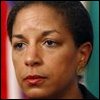
[TamilNet, Tuesday, 27 December 2011, 00:02 GMT]
The Obama Administration has repeatedly affirmed its commitment to human rights and dignity and rule of law and has largely delivered on its promise -- most notably in the context of the Arab Spring. Tragically, it has failed dismally in the case of Sri Lanka, with catastrophic consequences (a) to the many tens of thousands of Tamil civilians killed whom the US knowingly failed to protect, under Blake architected policy on Sri Lanka, during and after the war; (b) to the credibility of US commitment to universal human rights, democracy and rule of law, and to justice and national reconciliation in Sri Lanka; and (c) to the integrity of international human rights and humanitarian law.
The UN Panel of Experts on Accountability in Sri Lanka ( April 2011) found credible allegations of war crimes and crimes against humanity by both sides, in the final six months of the war, in which up to 40,000 Tamil civilians had been killed, mostly by indiscriminate shelling of civilians, including hospitals, in Government declared "safe zones."
A British TV documentary produced by Channel Four called “Sri Lanka’s Killing Fields” contains horrific evidence in support of the UN Panel’s allegations, and widespread use of sexual abuse and rape by soldiers. The State Department has remained silent, even on the executions frames, which have been determined to be authentic by two UN Rapporteurs of extra judicial killings Failed US Policy on Sri Lanka.
The failure of US policy on Sri Lanka was largely due to a succession of unprecedented actions, centering largely in the State Department, first, the US policy of silence about ongoing mass atrocities and the complicity of topmost Sri Lankan leadership (some of whom are US citizens/ permanent residents), and, second, the subsequent failure of US policy on accountability and the continuation of serious violations in the nearly three years since the end of the war.
The US has repeatedly affirmed its position that “accountability and reconciliation are irretrievably linked." However, accountability was severely constrained by a series of actions by the US. These included the rejection of the UN Panel’s recommendation for the immediate establishment of an international mechanism to investigate the alleged crimes during the war and to monitor the government’s post war policies, and US insistence that Sri Lanka should have primary responsibility to investigate its own alleged crimes, according to international standards, but with no time limit.
US focus on accountability only on alleged crimes during the war, also enabled Sri Lanka to engage in a wide range of serious post war violations in the former conflict areas in the North East, virtually without being called to account.
The post war violations have been reported by many credible sources.—including the State Department Human Rights bureau, the UN Expert Panel, the International Crisis Group, UN Rapporeurs on Torture and Extrajudicial Killings, and in November by the UN Committee. The State Department has remained largely silent on these reports.
LLRC Report and the collapse of accountability
The almost universally foreseen failure of US policy on accountability is now complete ---with the failure of the recently published report of Sri Lanka’s own inquiry – the Lessons Learnt and Reconciliation Commission to meet criteria for LLRC agreed by Ambassador Susan Rice in March 2010---especially that LLRC “would fully investigate serious allegations of violations” and "identify those responsible and make appropriate recommendations based on its findings.”
The comment by the International Crisis Group is typical—“The LLRC fails in a crucial task – providing the thorough and independent investigation of alleged violations of international humanitarian and human rights law that the UN and other partners of Sri Lanka have been asking for. It is now incumbent on the international community, through the UN Human Rights Council, to establish an independent international investigation in 2012.”








